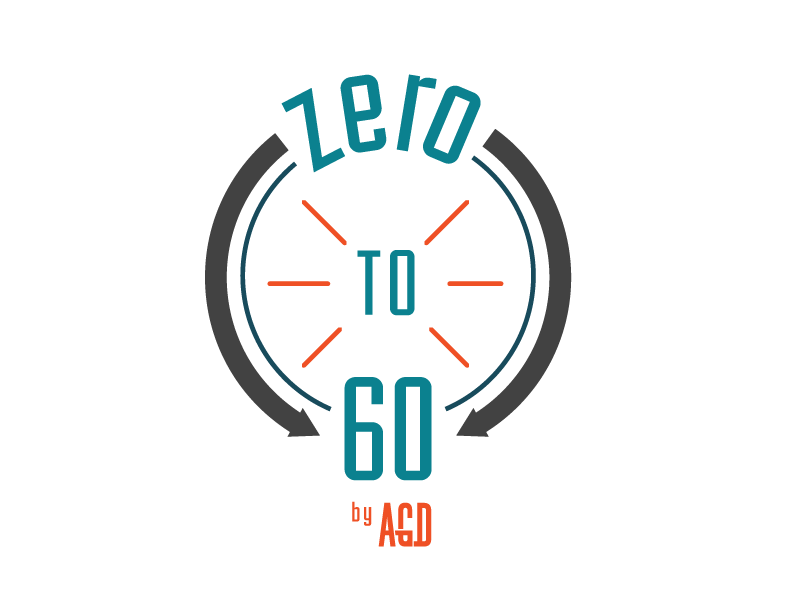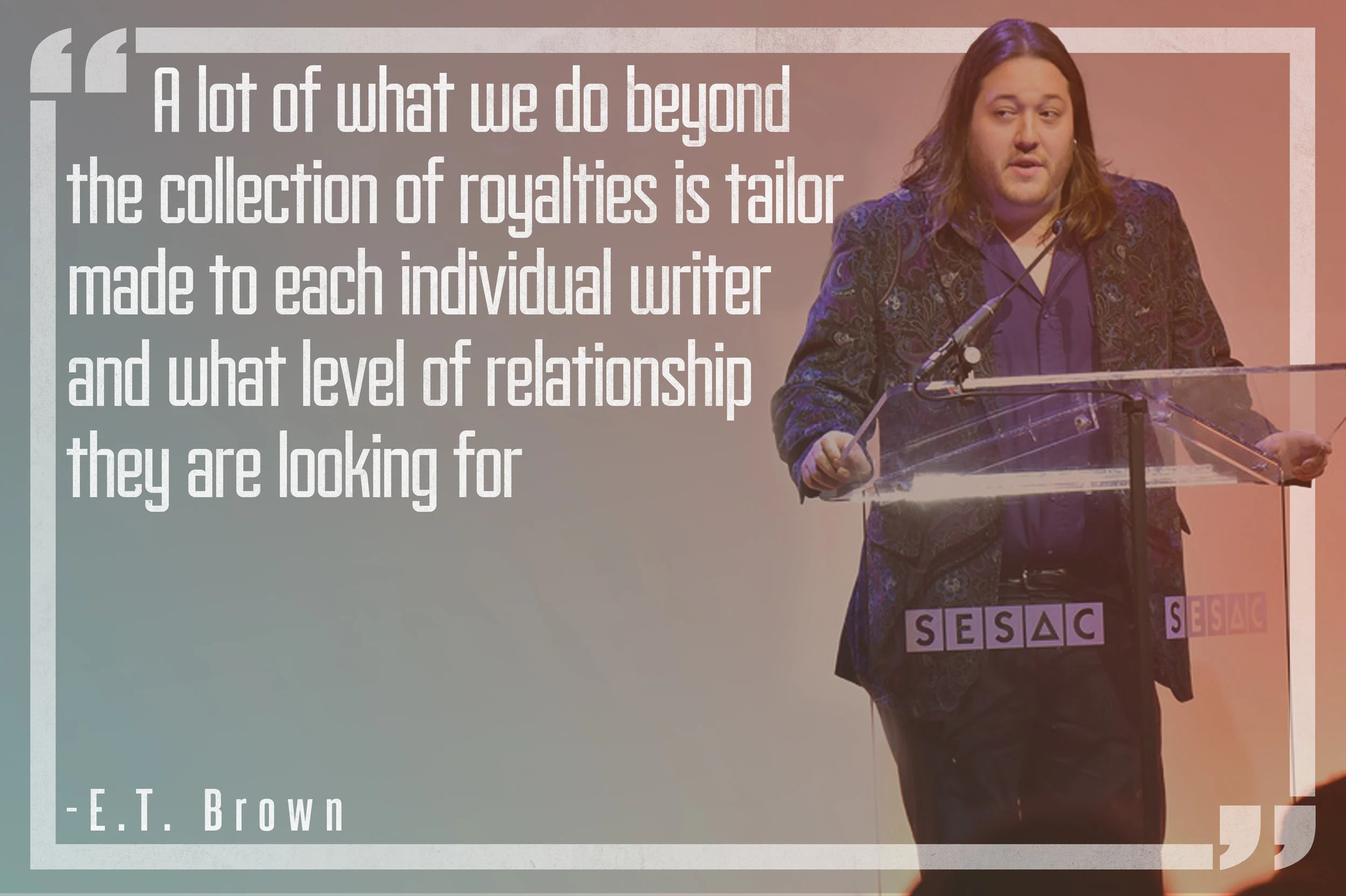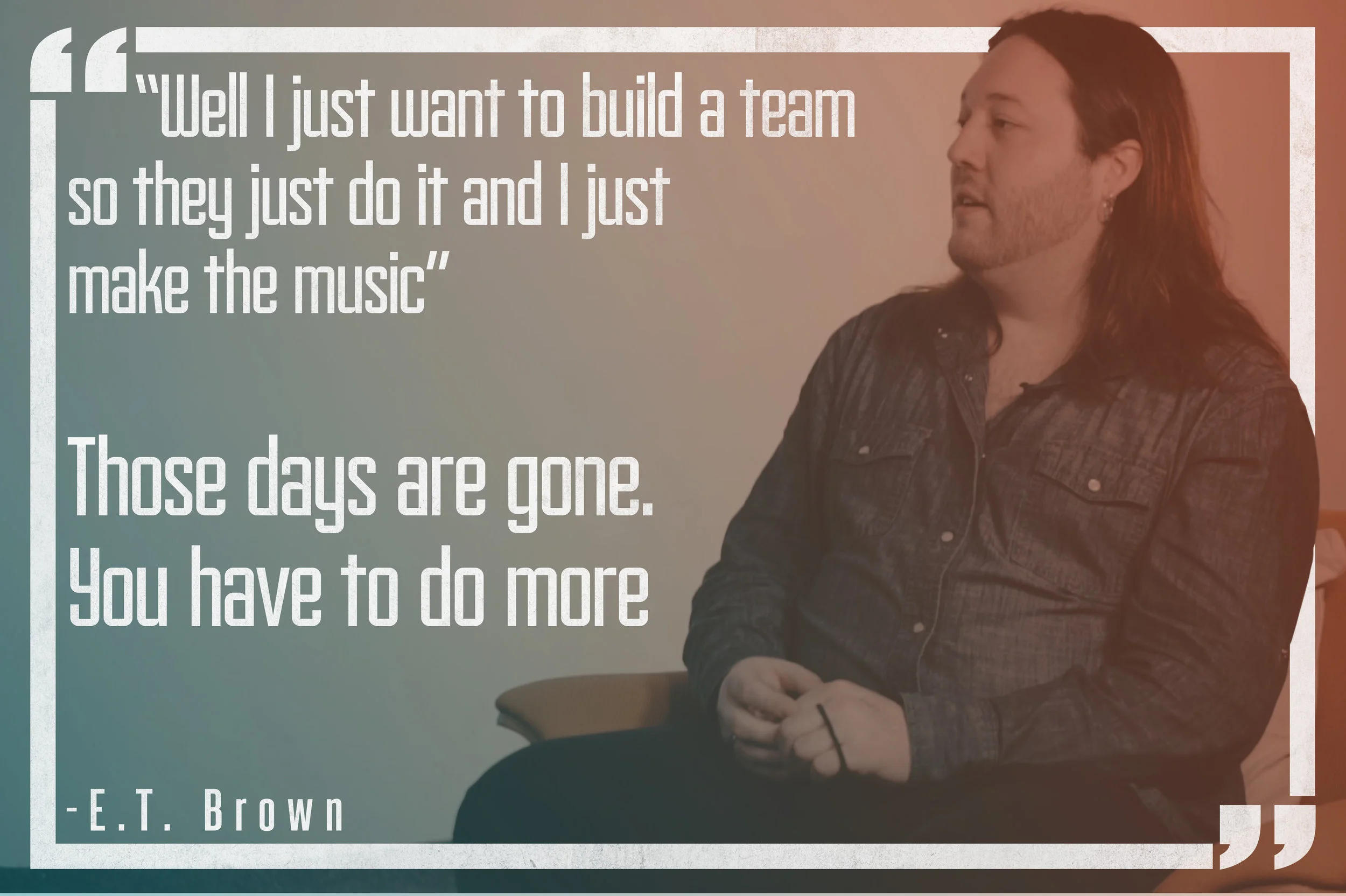We're talking Operations this month and Nathan sat down with E.T. Brown, a Manager of Creative Services at SESAC to chat about the role of PROs in an artist's career, making connections with industry folk, understanding the different jobs on your team, and more.
“[SESAC] is much smaller by design, we are highly selective, we are the PRO that you graduate to.”
Whenever a song you wrote is performed in public via a recording or live performance, you are owed performance royalties. This includes plays on the radio, TV, sports stadiums, in venues or over the speakers of businesses. This money is collected and paid out by a P.R.O. (Performance Rights Organization) or M.R.O. (Music Rights Organization) such as ASCAP, BMI, SOCAN, SESAC or AMRA.
SESAC (founded in 1930 as the Society of European Stage Actors and Composers) is the second oldest PRO and the fastest growing in the United States. Their approach to growing their roster is “Quality over Quantity.” This is why their application process is invite only.
Since their job is to collect royalties from virtually everybody who plays your music out in public the your PRO's representatives end up working with people from all over the industry; from music supervisors placing music in TV shows, to venue owners, to radio stations. Having these connections awards them the opportunity to help guide artists along their career path and introduce them to the people they need to be meeting. That's where E.T. comes in. As a Manager of Creative Services his job is to interact with the artists on SESAC's roster and help them with whatever they need. Sometimes that's the administrative stuff like fixing a mistake on a song registration, or helping them access their account information; other times it's listening to a demo and giving them some feedback, introducing them to potential co-writers, or sitting down with them and helping to strategize what their next steps should be towards reaching their career goals.
When it comes to the day-to-day operations of an artist's career there are a thousand different jobs that have to get done.
From band meetings to studio time to finances to release schedules, how you run your career sends a clear message to anyone paying attention about how serious you are about making it in the music industry. Most developing artists think that if they could just find that manager, or that agent, or that publicist then that's going to be the thing that catapults them into the next level where they can focus 100% on the music while the team makes the business happen.
Back in the day when record labels were plucking musicians off the streets and turning them into stars that may have been the case but not anymore. These days you have to prove to these people that you're going to succeed with or without them before they even consider joining your team.
Executing a solid plan on your own is a good way to find your new team
In 2014 Americana/Blues artist Levi Parham self-released an EP called Avalon Drive. His overall campaign involved two singles each with their own music video along with an extensive tour following the release.
He had met producer Jimmy LaFave earlier on in his career but after watching the rollout of Avalon Drive, and seeing the hard work Levi was putting into his live performance strategy, Jimmy wanted to turn right around get started on a full-length. In December of 2015 Levi was signed to Music Road Records and immediately got to work on his latest LP "These American Blues."
The album quickly rose on the Americana Music Association Charts; climbing all the way into the Top 40 and staying for several weeks, topping out at #23 and opening up opportunities for even more touring. Levi spent most of 2017 playing around Europe before coming back to the states to get back to work on another record.
Proud sponsor of The 615 show on Lightning 100
A.B.C.
Always Be Creating
If you're looking to build a team that is excited about championing your art...you need to be making art. Every piece of content you release is an opportunity to show the world how you execute a release plan. Putting out a three song EP and trying to gain momentum with it over the next 2 years while you wait for the muse to strike on the your masterpiece full-length debut record isn't going to cut it.
Conceptualize, Create, Execute
The release of your record isn't a beginning, it's an ending. Once you've released it, it's out there and you have significantly less power over when and how people are introduced to it. Once you've built up your catalog of songs to a place that lets you choose the narrative of your next release, get to work on a release strategy. Work with your team to build a cohesive and executable plan that builds excitement for the release. If you don't have a team then you have a lot of work to do, but it can be done. Keep your plans small enough to be successful but ambitious enough to make a splash. Once the plan is in place it's time to make the art. If you get the strategy in place before you start the recording process, you'll be able to focus on what you're really here for in the first place; making music.
As a rule we don't schedule release dates for a record until we have the master recordings in hand. This way, when it comes time to begin our release schedule we get to sit back and let it happen. At that point everything is ready to go and it's just a matter of executing the plan.
Now that you've made your plan and executed it flawlessly, check in with E.T. (or your own rep) to make sure all your songs are registered.





